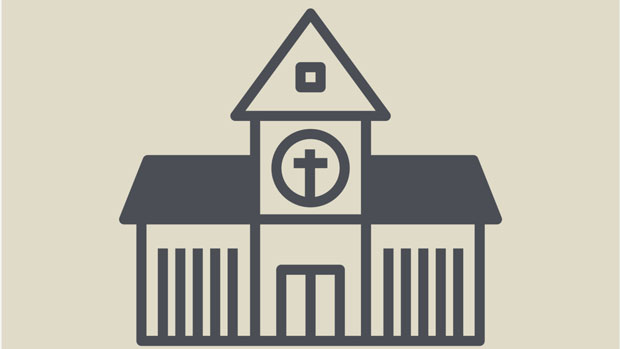Today's interview is with Barnabas Piper. Barnabas is the Content Marketing Strategist for Lifeway Christian Resources, and an author, his latest book being The Pastor's Kid: Finding Your Own Faith and Identity. Today, we talk with Barnabas about being a pastor's kid, rebel PKs, and creating a haven at home.

1) There are a lot of pastors' kids out there, but few who have grown up in the home of such a prominent pastor as your dad, John Piper. Is the fishbowl bigger when your father is so well-known?
In one sense it is and in another it isn't. Clearly more people know my name and stories about me than the average pastor's kid. I have exacerbated that by serving with conservative evangelical publishers, also a world where my dad is well known. So yes, it is a bigger fishbowl in that way.
On the other hand, almost all pastors' kids feel the same sort of "on display" pressures in their own context. The fishbowl is sort of scalable to size—it doesn't really matter if your church has 50 people or 5,000, the pressures are of the same nature. In some ways, those from small churches have it harder because everyone knows everything about them; they can't hide. In some ways those on a bigger stage have it harder because of all the eyes on them.
2) There is a caricature of pastor's kids as rebels who get into all kinds of trouble. Is this the exception or the rule?
It's not the rule, but it happens far too often to be an exception. The term caricature is a good one because it takes a noticeable feature and blows it out of proportion. I think PKs rebel at a relatively similar rate to most church kids. It's just more visible because, gasp, it's the pastor's kid smoking weed or sleeping around. That visibility adds a level of intensity to the rebellion, though. It makes it harder to come back when you leave, and can stir up serious bitterness.
3) We've seen more than a few angst-ridden memoirs by pastor's kids and others who have grown up in evangelicalism. You've chosen not to do this, but still present an honest, realistic portrait of growing up in a pastor's home. Why?
I have plenty of things about the church at large and about being a PK that annoy and anger me, but holding on to that eats me up and only makes me resent the very entity God gave us to represent him.
Angst offers little that is constructive or productive, no matter how justified it is. In fact, it usually isn't all that justified. Not when you take the profound power of God's grace into account. I have plenty of things about the church at large and about being a PK that annoy and anger me, but holding on to that eats me up and only makes me resent the very entity God gave us to represent him. I love the church. I need the church. Sometimes I want to choke the church. But I believe the church is God's institution, so my responsibility is to figure out how to serve and help it.
On the personal side, I love my parents. They were good parents with flaws. Sometimes they fell into the traps so many pastors and their spouses do, but they loved my siblings and me and provided a godly, stable, generally happy upbringing. I wrote The Pastor's Kid with the phrase "honor your father and mother" echoing in my mind. No, I didn't pander to them, but neither did I want to disrespect or hurt them. That would be sinful and stupid.
4) Churches often don't know how to treat the pastor's kids. How would you counsel them?
PKs want the chance to be known as the unique individuals God made them to be, not as chips off the ol' block or the bearer of a great family name.
The fact that churches need to "figure out how to treat" a PK is a key part of the problem. PKs are kids, little sinful kids created in the image of God with all the potential for good and ill that any other kid has. They should be treated with the same grace as every other kid. If your church lacks grace for other kids then start there and work forward. If you wouldn't say something to an anonymous church kid, don't say it to the PK either. They feel the eyes on them; don't make it worse by being intrusive.
PKs want the chance to be known as the unique individuals God made them to be, not as chips off the ol' block or the bearer of a great family name. They don't likely want to "be a pastor like dad," and they definitely don't want to be held to different moral standard. PKs need normal, honest friends who care little for their last name and greatly for them as people.
5) If you could speak to a pastor or church leader, what would you say to them as they think through the impact their ministry will have on their kids?
Pastors, your kids need you as a dad, not a pastor.
Pastors, your kids need you as a dad, not a pastor. They don't need sermons; they've already heard more than any other kids. They don't need questions or counseling; save that for the church members who visit the office. Converse with them. Spend time with them doing what they enjoy and including them in what you enjoy (which means get a hobby if you don't have one, and reading doesn't count).
You cannot protect them fully from the pressures of being a PK, but you can create an environment at home that is a haven. You can listen and empathize. You can give them room as they grow up to question, doubt, and wander. Jesus is the only way of salvation, but their path to Jesus may not look much like yours. Be ok with that. Always reflect Jesus. Always point to Jesus. Then let them meet him for themselves so that they see him as their Savior, their Lord, their intercessor, their friend—not just as yours.
Daniel Darling is vice-president of communications for the Ethics and Religious Liberty Commission. He is the author of several books, including his latest, Activist Faith.










